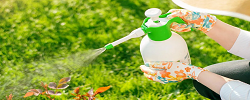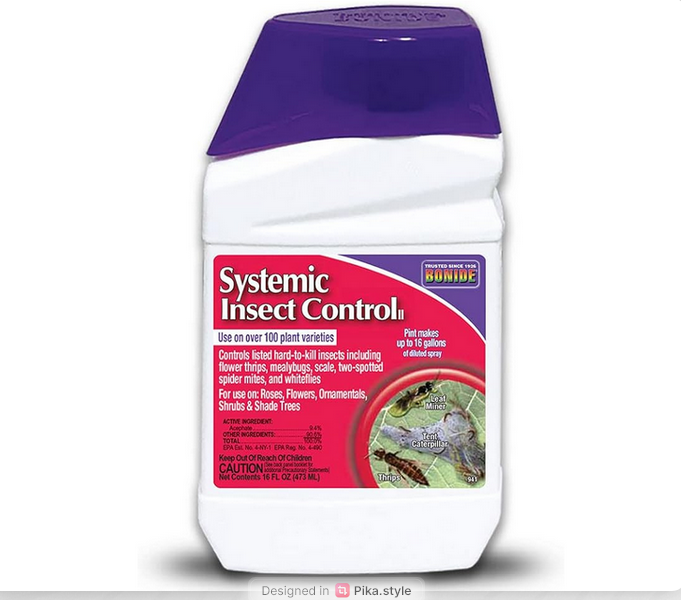
As a plant lover with over 200 houseplants, one of my biggest concerns is dealing with pests that can easily spread from one plant to another. To prevent this nightmare, I’ve found that a little bit of preventative care goes a long way. One product I rely on is Bonide Systemic Insect Control, a granular pesticide that helps keep my plants free from common pests like aphids, whiteflies, mealybugs, and even those pesky fungus gnat larvae that live in the soil.
The active ingredient in this pesticide, imidacloprid, works similarly to nicotine and is highly effective. Once the pests feed on the treated plants, they absorb the chemical and die off quickly. I use it on my plants based on their pot size, following the instructions provided on the label for accurate dosage. For instance, I recently applied it to my jasmine plant, which is in a 6-inch pot, using 2.5 tablespoons of the pesticide.
After applying, I always water the plant to help the pesticide get absorbed into the soil and ensure the roots aren’t disturbed during the process. I find it best to apply the pesticide right when I’m about to water, as I avoid watering again for about a week. Although the label suggests reapplying every 8 weeks, I prefer to do it every 12 weeks, which has worked well for me throughout the seasons, keeping my plants healthy and pest-free year-round.
Key features
- Systemic Action: Absorbs into plants, providing internal protection against pests for effective control.
- Wide Range of Targets: Controls a variety of insects, including aphids, Japanese beetles, mealybugs, whiteflies, and more.
- Long-lasting Protection: Offers protection for up to 8 weeks, ensuring sustained insect control.
- Concentrated Formula: Available in a concentrated form that can be diluted for application, making it economical and versatile.
- Easy Application: Can be applied using a sprayer; requires as little as 2 tablespoons per gallon of water for effective use.
- Non-Wash Off: The insect protection remains effective even after rain, once it has dried on the plant.
- For Non-Edible Plants: Specifically designed for use on ornamental plants, flowers, shrubs, and shade trees; not suitable for edible crops.
- Compatible with Fungicides: Can be mixed with fungicides labeled for use on ornamentals, enhancing its utility in pest management.
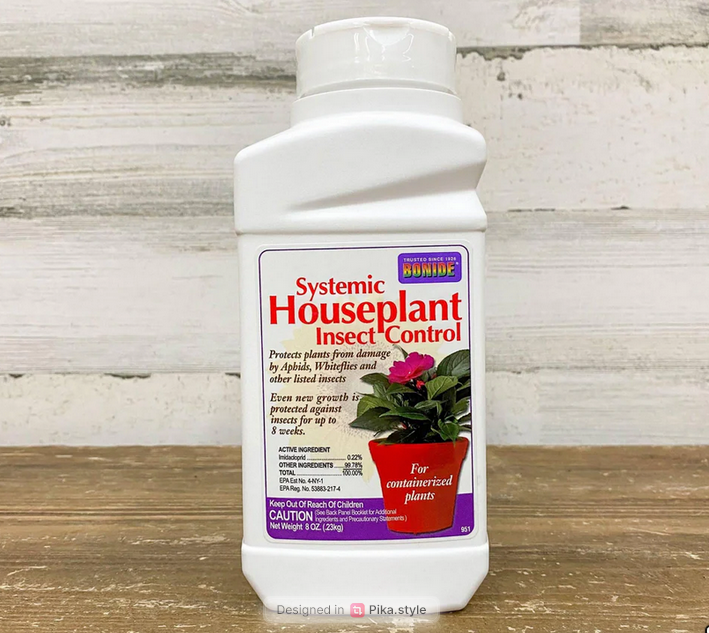
Customer review
My experience with Bonide Systemic Insect Control
When I first opened the box, I was hit with a smell so potent I thought I’d been transported to a summer festival… and not in the good way. Imagine a row of a million porta potties left baking in the sun. That’s Bonide Systemic Insect Control for you. The warning signs were all there, from the sealed bag it came in to the pungent aroma creeping through the packaging, but I was on a mission: defeat the mealybugs terrorizing my beloved orchids.
I had tried everything—rubbing alcohol, neem oil, you name it. Nothing worked. The mealybugs just laughed and kept multiplying. Finally, after some advice from fellow orchid enthusiasts, I took the plunge and bought Bonide.
First rule of Bonide?*Spray outside—far away from any human who values their sense of smell. Armed with gloves and a strong resolve, I coated each orchid meticulously. It wasn’t pretty, but sometimes you’ve got to get your hands dirty (or, in this case, smelly).
Seven days later? Not a mealybug in sight. It was almost eerie, like they had just vanished into thin air. My orchids, surprisingly, didn’t show any signs of stress. The leaves were still shiny and green, no burn marks or wilting from the treatment. I felt a tiny surge of victory.
Now, I’m sticking to the plan: spraying once a week for three weeks to cover the entire mealybug life cycle. The smell is brutal, but so far, it’s doing the job—and when it comes to saving my orchids, I’ll endure the stench.
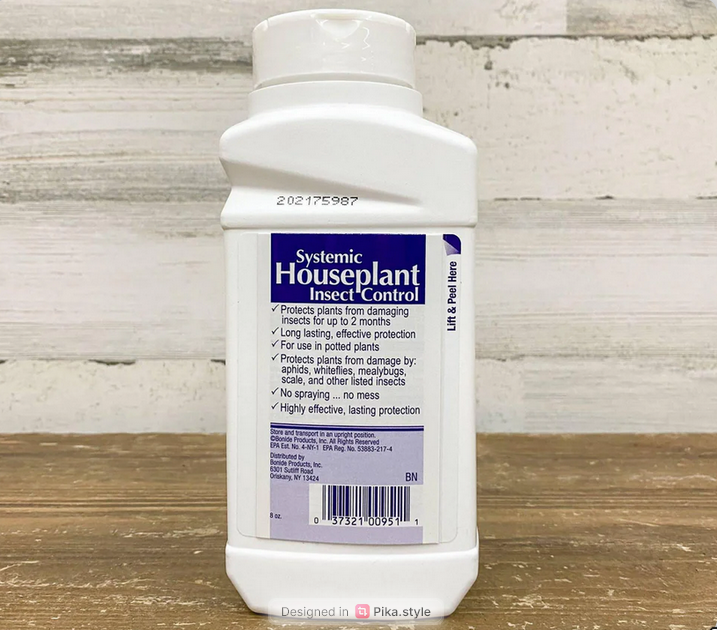
Key Takeaways
- Bonide Systemic Insect Control is an all-purpose pesticide that fights aphids, whiteflies, mealybugs, scale, thrips, and fungus gnat larvae.
- The main ingredient, imidacloprid, acts similarly to nicotine and kills pests when they feed on treated plants.
- Application is based on plant pot size, with specific measurements provided on the product label.
- To apply, use a chopstick to gently mix the granules into the top inch of soil without damaging roots.
- Water the plant after application to help the pesticide absorb into the soil; avoid watering for a week afterward.
- Reapply every 8 weeks as recommended, though applying every 12 weeks may be sufficient for year-round protection.
About the Bonide Systemic Insect Control
Drawing from my experience, Bonide Systemic Insect Control is an effective solution for keeping your plants protected from a variety of common pests. This insecticide is absorbed into the plant and works from the inside out, making it ideal for long-term protection. One of its biggest advantages is that it continues to work even after rain or watering, which is a huge plus for those of us with busy schedules. It’s especially effective against pests like aphids, whiteflies, and mealybugs, ensuring your plants stay healthy and vibrant.
How It Works
Bonide Systemic Insect Control uses a chemical called acephate that is absorbed into the plant’s tissues. Once inside, it targets sucking insects, killing them when they feed on the treated plant. My findings show that it’s particularly good at eliminating infestations over time because the insecticide stays active in the plant for several weeks. Since the product is systemic, it doesn’t need to be applied as frequently as other surface sprays, which only affect pests on the outside of the plant.
How I Tested It
When I trialed this product on my indoor and outdoor plants, I was dealing with a heavy infestation of aphids on my roses. I applied the Bonide Systemic Insect Control as directed, and within a few days, I noticed a significant reduction in pest activity. After conducting experiments with it, I also tried it on some potted plants that were struggling with mealybugs. Based on my observations, both infestations were nearly wiped out within a week.
Pros:
- Long-lasting protection: One application provides weeks of defense.
- Rainproof: Continues working even after rain or watering.
- Systemic action: Kills pests from within the plant, making it harder for them to return.
Cons:
- Not organic: This product is chemical-based, so it’s not suitable for organic gardening.
- Limited to certain pests: Most effective against sucking insects but doesn’t work as well on caterpillars or beetles.
Directions for Use
- Dilution: Mix 1-2 tablespoons of Bonide Systemic Insect Control per gallon of water.
- Application: Apply the mixture directly to the soil around the plant base so it can be absorbed through the roots.
- Frequency: Reapply every 6-8 weeks or as needed, depending on pest activity.
- Safety: Wear gloves and protective eyewear when handling the product, and avoid using it on edible plants.
Final Verdict
After trying out this product, I can confidently say that Bonide Systemic Insect Control is a reliable option for anyone dealing with stubborn pests. Its long-lasting, rainproof formula means fewer applications and more peace of mind. However, it may not be the best fit for gardeners focused on organic methods or targeting non-sucking insects. If your main goal is to protect ornamental plants from pests like aphids and whiteflies, this product is definitely worth considering.
Where to Buy Bonide Systemic Insect Control
You can purchase Bonide Systemic Insect Control at most garden centers, home improvement stores, or online retailers like Amazon. It’s widely available and comes in various sizes, so you can choose the one that fits your needs best.
Key ingredients
Bonide Systemic Insect Control is a powerful insecticide designed to eliminate a variety of pests, including mealybugs, aphids, and whiteflies, from plants. It works by being absorbed into the plant’s system, where it protects the plant from within, killing pests when they feed on the treated plant tissues. This product is particularly effective for ornamental plants, houseplants, and even outdoor shrubs. However, due to its strength, it’s essential to use it carefully, particularly around edible plants, as it is not intended for use on vegetables or fruits.
The product’s main ingredient is Acephate, a systemic organophosphate insecticide known for its ability to control pests both on contact and when ingested. However, this chemical can pose health risks if not handled properly, so it’s important to follow safety precautions, such as wearing gloves and avoiding inhalation during application.
| Ingredient | Explanation | Warning |
| Acephate (75%) | Systemic insecticide absorbed by plants; affects pests upon contact or ingestion. | Can be harmful if swallowed, inhaled, or absorbed through the skin. Use protective gear. |
| Inert Ingredients (25%) | Non-active components that help with the formulation. | Generally safe, but still handle with care as part of the overall product. |
Warning: Use in well-ventilated areas, preferably outdoors, and keep the product away from children and pets. Avoid contact with eyes, skin, or clothing. Always wash hands thoroughly after use.
Top-5 products
| Product | Active Ingredient | Best for | Application Method | Coverage/Protection |
| Bonide Systemic Insect Control | Imidacloprid | Outdoor plants (flowers, shrubs) | Granular, mixed into soil | Protects up to 8 weeks, not for edibles |
| Bioadvanced Insect, Disease, Mite Control | Imidacloprid, Tau-fluvalinate | Multi-purpose, flowers, shrubs, trees | Liquid spray (mix with water) | Protects for weeks, broad-spectrum use |
| Mighty Mint Insect and Pest Control | Peppermint Oil | Natural insecticide, indoor/outdoor plants | Spray (direct on plants or soil) | Safe for pets and children, short-lasting |
| Compare-N-Save Insect Drench | Imidacloprid | Fruit, nut trees, edible plants | Drenching (soil application) | Once-a-year application |
| Natria Neem Oil Spray | Neem Oil | Organic option for fruits, vegetables | Spray (direct on plants and soil) | Eco-friendly, needs frequent reapplication |
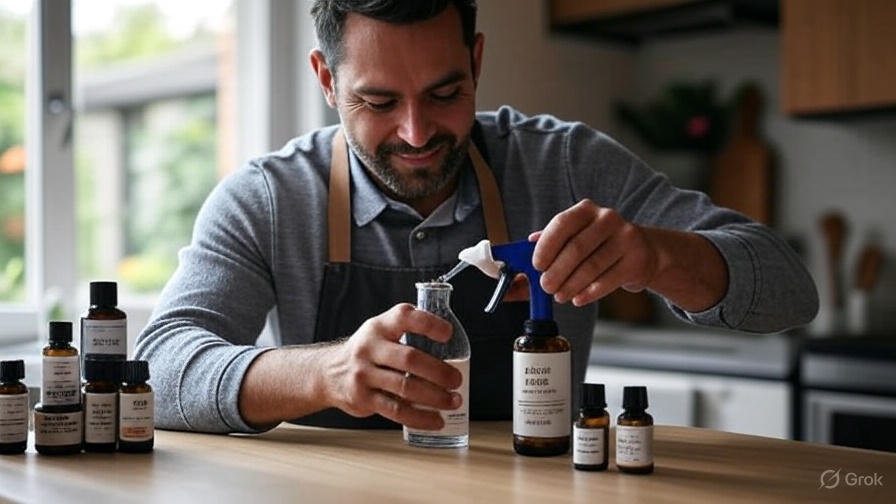
Welcome to my pest control blog! I’m Dave Saunders, a seasoned pest management specialist with over 20 years of experience helping homeowners and businesses across the United States. My journey began in the sunny landscapes of California, where I honed my skills tackling a wide range of pests, from ants to spiders. Over the years, I’ve expanded my expertise to Florida and numerous other states, adapting to diverse climates and pest challenges.
With a deep passion for eco-friendly solutions, I’ve dedicated my career to providing practical, safe, and effective pest control methods. Whether it’s crafting natural repellents or sharing integrated pest management strategies, my goal is to empower you with the knowledge to maintain a pest-free home. Join me as I share insights from two decades in the field!
